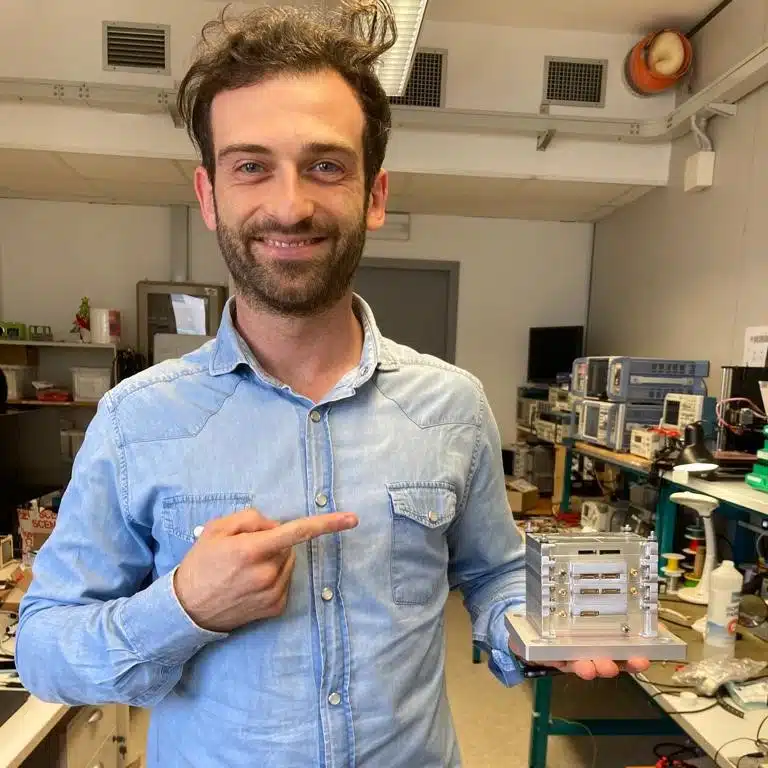PICOSATS, a spin-off company of the University of Trieste founded by Professor Anna Gregorio in 2014 and established at the Area Science Park, announced that it has signed a contract with the space logistics transport company D-Orbit for the in-orbit demonstration of the RADIOSAT transceiver and BEAMSAT antenna. The mission is scheduled for October 2023 on board of the ION Satellite Carrier (D-Orbit).
Having successfully completed the realisation and delivery of its first commercial order, the start-up is now preparing for its ‘space baptism’. Born out of many years of research and the aerospace expertise of its team of researchers, it develops and markets state-of-the-art telecommunications systems for the small satellite market that aim to make space accessible to the global community. Its flagship products include RADIOSAT, a miniaturised, non-regenerative transponder designed for cubesats and small satellites for LEO and GEO orbit applications, and BEAMSAT, a high-gain antenna available in several frequency bands.

Marco Parlani, Project Manager di LIFTT, at PicoSats’ labs
RADIOSAT has excellent performance in terms of speed and data transmission, as well as weight and size, and is the first high-frequency satellite transceiver with these characteristics in Europe and among the first worldwide. It allows high-speed data transmission even on small satellites with a mass of less than 100 kg and enables efficient communication in various fields: Internet connectivity, Internet of Things, Earth observation and environmental risk monitoring.
Thanks to the agreement with D-Orbit, the startup will be able to enter the European and international SATCOM equipment market with flight-proven products. This is definitely a great success for PICOSATS and an important step towards creating an interconnected and sustainable world. With this launch, the company will be able to set new goals and achieve greater visibility.
In addition to space flight, another objective of the investment deal will be the completion of the technological asset through the development of a proprietary MODEM, which will complete the RADIOSAT offer (with the possibility for the new device to also be able to reprocess the received data before being retransmitted) and open up new market scenarios. A prototype for 5G telecommunications is also being developed in collaboration with the European Space Agency.



